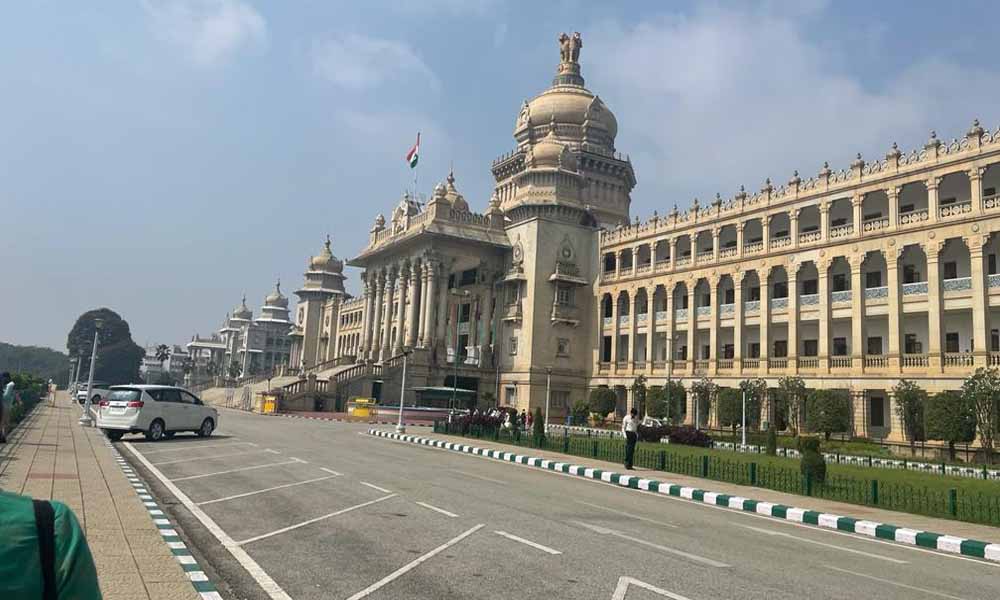Karnataka Assembly will enter its 16th Assembly on May 10, 2023.
Despite the mandated days which are mentioned under the acts, the Karnataka assembly has been passing bills faster and having fewer sittings for detailed discussions in the 15th Assembly, revealed the report of PRS Legislative Research named ‘Functioning of the 15th Karnataka Legislative Assembly.’
Average days that the assembly sits in Karnataka have reduced from 49 days in the 14th assembly to an average of 33 days a year in the 15th assembly, revealed PRS report on Functioning of Karnataka Legislative Assembly.
The report said that in the 15th Assembly, there were 167 sitting days across 15 sessions. Thus, average number of sittings in a year has reduced to just 33. It added that the number of sitting days have reduced in the both the houses of the Karnataka Legislature, assembly and council.
It is mandated under the Karnataka Conduct of Government Business in the State Legislature Act, 2005 that the legislature has to conduct sessions for a minimum of 60 days. However, this target has not been met by the Karnataka Assembly since 2002, said the PRS report.
Dr. Harish Ramaswamy, Professor of Politics at Karnatak University, Dharwad said “The number of mandated days and hours are part of the procedure laid down. It is their responsibility to discuss and hold debates to discuss bills.” He added that legislatives assemblies are important to discuss issues of the people and help in introduction of bills to solve them. “This would not happen if they are not meeting regularly,” he said.
Apart from this, even though it is necessary to have sessions for 15 days during Monsoon Sessions, the assembly has held just 10 sittings. However, they held the required number of sessions during the Winter Session. The bills which were passed on the same day of its introduction without any discussion include the ‘Karnataka Lokayukta (Second Amendment) Bill, 2020, the Karnataka Epidemic Diseases Bill, 2020, and the Karnataka Religious Structures (Protection) Bill, 2021.’
As the assembly is sitting for fewer days, the bills are being passed by the assembly on the same day or within the same week of its introduction. Both the houses passed 86 percent of the bills in the same session in which they were introduced.
Only five percent of bills were sent to committees for ‘detailed scrutiny.’ One such bill was ‘The Bruhat Bengaluru Mahanagara Palike Bill, 2020’ which was examined by a Joint Select Committee comprising of members from both the Assembly and the Council.
Harish said “It is the duty of the committee’s also known as statutory bodies to scrutinise each bill introduced in the house.” He added that along with the PRS report, many reports have highlighted that the biases of the committees. “Many committees also give their judgments in favour of political parties,” he said.



